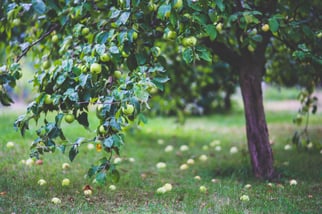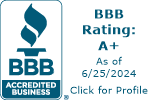REVEALED: The Hidden Infrastructure Network That Keeps America's Public Spaces Safe And Function
Ever had that moment where you suddenly see your industry from a completely different angle?
A New Perspective from Above
I had exactly that experience yesterday while flying down the Eastern seaboard. As our plane descended toward Philadelphia, I got a rare bird's-eye view of the urban landscape below.
And you know what caught my eye? All these different structures and barriers—some I couldn't even identify from that height!
From above, you could make out all kinds of fencing, barriers, and what appeared to be mesh installations across the landscape. There were what looked like erosion control applications along highways and what I'm guessing were various containment solutions in commercial and public spaces—it was like seeing this hidden infrastructure network that most folks never notice.
The Complexity of Infrastructure
What really grabbed my attention was how different all these installations looked from above—though honestly, I couldn't tell you which was which or what exactly I was looking at half the time! But it got me thinking about the vast network of mesh and netting applications that must be out there.
From that height, everything blends together in interesting ways. You can't make out the details, but you get this sense of the sheer scale of infrastructure that we normally don't think about.
The Importance of Informed Decisions
This made me think about how many project managers are making material decisions without understanding the long-term implications.
Here's the thing:
When you're focused on budget alone, it's easy to miss the critical importance of proper mesh and netting selection. You need someone who understands the specific requirements of your application, not just generic products.
At Louis Page, we're not just selling wire mesh and plastic netting—we're providing the essential infrastructure for zoos, parks, and DOT projects across the country.
Whether you're designing animal habitats, planning erosion control, or creating safe recreational spaces, the quality of your mesh and netting isn't something you want to compromise on or realize is inadequate when the project is already complete.
The Last Supplier You'll Ever Need
Here's where you can take action today:
Terry is our mesh and netting expert with decades of experience helping clients find the perfect product for their specific applications. She can help you identify the right specifications before you waste money on inappropriate materials.
Give her a call directly at 978-486-3116. No obligation, just straight talk about your specific needs.
Or check out our full range of wire mesh and plastic netting solutions at louispage.com to see why parks, zoos, and government projects across the country trust our products for their most demanding applications.
Until next time,
Debbie Page
P.S. Flying gives you perspective. So does working with experts who've seen every mesh and netting challenge imaginable. Terry's waiting for your call: 978-486-3116.













